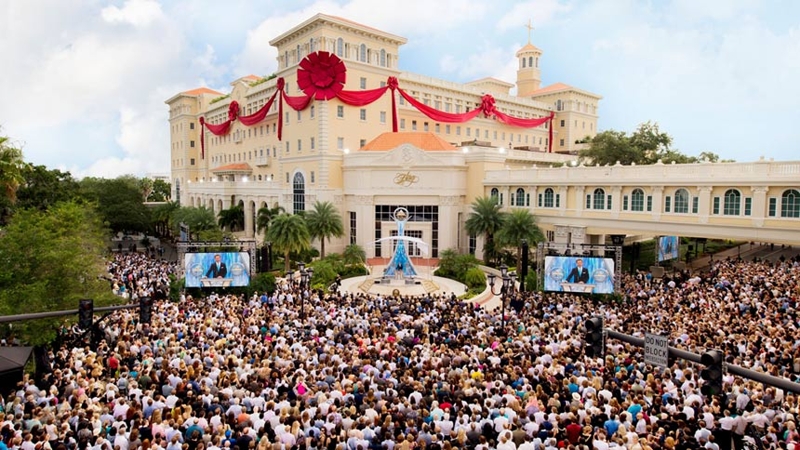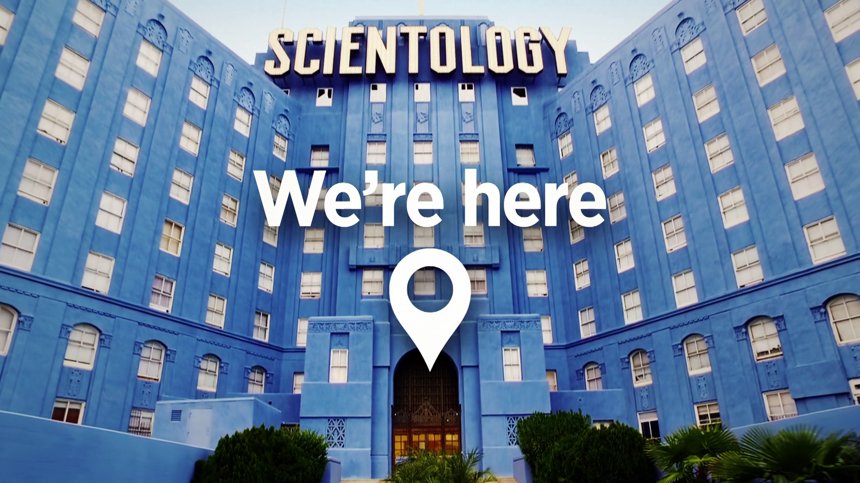Opening the Mysteries of Scientology: Resources, Solutions, and Efforts
Opening the Mysteries of Scientology: Resources, Solutions, and Efforts
Blog Article
Unveiling the Beliefs and Practices of Church of Scientology
As a intriguing and often controversial subject, the Church of Scientology has actually long mixed curiosity and debate. Central to Scientology is the idea of auditing, a kind of spiritual counseling intended at accomplishing a state of clearness and self-realization.
Founder and Core Beliefs
Established in the mid-20th century by L. Ron Hubbard, the Church of Scientology is based on the core ideas centered around the concept of spiritual enlightenment and self-improvement. Hubbard, a respected writer and philosopher, developed Scientology as a religious beliefs in 1954, emphasizing the concept that people are immortal souls who have actually neglected their true nature. Central to Scientology is the idea in the immortal heart, or the "thetan," which is truth self that transcends the physical body.
Hubbard created a collection of trainings and methods targeted at helping individuals accomplish spiritual understanding and overcome past traumas through a procedure called bookkeeping. Bookkeeping involves an one-on-one session with a trained auditor who guides the person with a series of questions and workouts developed to uncover and resolve unfavorable experiences or emotions. Via auditing, followers of Scientology look for to obtain a state of "clear," where they are free from the negative results of previous traumas and can run at their complete possibility.
Auditing and Spiritual Practices

In addition to auditing, the Church of Scientology likewise highlights numerous spiritual methods to boost individual growth and self-awareness. These methods include studying the trainings of Scientology founder L. Ron Hubbard, taking part in community events, and engaging in ethical behavior. Fans are motivated to use these spiritual practices in their everyday lives to achieve spiritual enlightenment and individual fulfillment. On the whole, bookkeeping and spiritual practices act as fundamental tools in the journey in the direction of spiritual enlightenment within the Church of Scientology.
Sea Org and Business Structure
The Church of Scientology's functional effectiveness and hierarchical structure are exhibited through the Sea Org and its business framework. The Sea Organization, generally referred to as Sea Org, is a religious order within Scientology that plays a critical function in supervising the day-to-day procedures of the church. Members of the Sea Org devote to lifetime of service, authorizing a billion-year agreement representing their dedication to the church's goal.
The organizational structure of the Sea Org is very centralized, with a strict pecking order that guarantees clear lines of authority and liability. At the top of the structure is the Commodore's copyright Organization (CMO), which acts as the intermediary between the Sea Org and the Church's management. Below the CMO are numerous divisions and devices liable for various facets of the church's procedures, such as management, interaction, and protection.

Criticisms and debates
In the middle of the prevalent influence and operations of the Church of Scientology, many disputes and criticisms have actually appeared, triggering debates and examination from numerous quarters. One significant point of contention rotates around the Church's practices of detaching participants from those that examine the organization or slam, including family members and good friends - Scientology. Doubters argue that this policy can bring about isolation and the malfunction of partnerships outside the Church
An additional contentious problem is the Church's hostile litigation strategies versus former members, journalists, and others who speak up against Scientology. These legal battles have actually increased concerns about flexibility of speech and using lawsuits as a device to silence dissent.

Star Participation and Influence
One element that has dramatically added to the general public photo and reach of the Church of Scientology is the participation and impact of celebs in its techniques and promo. Considering that its beginning, the Church of Scientology has actually proactively looked for the assistance of famous numbers in the show business. Top-level celebs such as Tom Cruise Ship, John Travolta, and Kirstie Street have actually openly supported Scientology, bringing interest to the religious beliefs and drawing in new fans.
Star participation in Scientology exceeds plain endorsement; some stars hold influential placements within the Church. Tom Cruise, one of the most well-known Scientologists, is considered a famous number within the company and has actually been involved in promoting Scientology internationally. These star recommendations and energetic participation in spreading the ideas of Scientology have helped enhance the presence and approval of the religion, specifically amongst fans and followers of these celebrities
Nonetheless, the impact of stars in Scientology has likewise been a topic of debate, with doubters arguing that their participation boosts the understanding of Scientology as a celebrity-driven cult instead of a genuine spiritual company.
Verdict
In final thought, the Church of Scientology, founded by L. Ron Hubbard, is based on the concepts of bookkeeping and spiritual practices. The beliefs and practices of the Church of Scientology proceed to be a topic of dispute and scrutiny within culture.
Established in the mid-20th century by L. Ron Hubbard, the Church of Scientology is based on the core beliefs centered around the principle of spiritual knowledge and self-improvement.Bookkeeping and spiritual methods in the Church of Scientology play a pivotal function in leading followers towards spiritual recognition and personal development.Apart from auditing, the Church of Scientology likewise emphasizes different spiritual techniques to enhance personal development and self-awareness. Overall, auditing and spiritual techniques serve as essential devices in the journey Church of Scientology towards spiritual enlightenment within the Church of Scientology.
In verdict, the Church of Scientology, started by L. Ron Hubbard, is based on the principles of auditing and spiritual methods.
Report this page